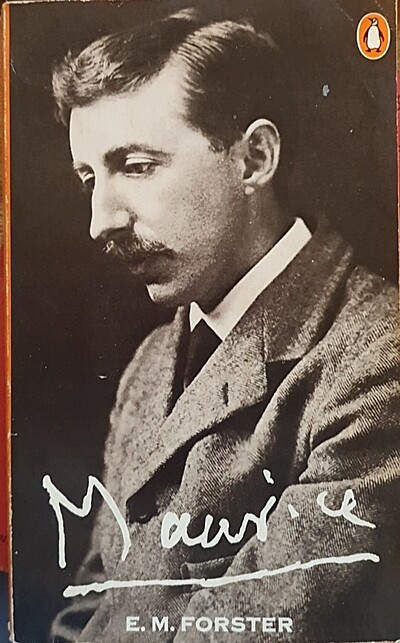He had gone outside his class, and it served him right. [loc. 2758]
A classic of LGBT+ literature, read for a 'published posthumously' challenge -- I managed to find an affordable Kindle edition. Splendid prose, intriguingly detached/omniscient narration, and appalling social tension. I felt a deep dislike for most of the characters, especially Maurice, and suspect it would have been reciprocated. ('Both were misogynists... In the grip of their temperaments, they had not developed the imagination to do duty instead, and during their love women had become as remote as horses or cats; all that the creatures did seemed silly.' [loc. 1301]. Miaow.)
Maurice forms a close friendship with Durham at university, but is repulsed when Durham declares his love. He then reads some Greek literature and decides that though homosexuality may be 'the worst crime in the calendar' he reciprocates Durham's love. There is a period of happiness, after which Durham declares that he has suddenly caught heterosexuality and is planning to marry. Maurice does not take this well. He has a liaison with a working-class man (Durham's gamekeeper Scudder) and -- after some disastrous miscommunications -- turns his back on his old life to be with Scudder.
Maurice is a sobering insight into the public (and private) attitude towards homosexuality in the Edwardian era. The Dean's translation class omits 'a reference to the unspeakable vice of the Greeks'; Maurice rejects Durham with the words 'a rotten notion really'; a doctor refuses to discuss 'nonsense'. It's a subject 'absolutely beyond the limit'. And Forster, of course, did not publish this novel in his lifetime.
I did like Maurice's notion of life beyond conventions: 'Perhaps among those who took to the greenwood in old time there had been two men like himself—two. At times he entertained the dream. Two men can defy the world.' [loc. 1779]. And apparently, in Forster's unpublished epilogues, that's what became of Maurice and Scudder. (source)
Forster completed the first draft of this novel in 1913-14. What would have become of Maurice and Alec in the war?

No comments:
Post a Comment